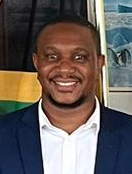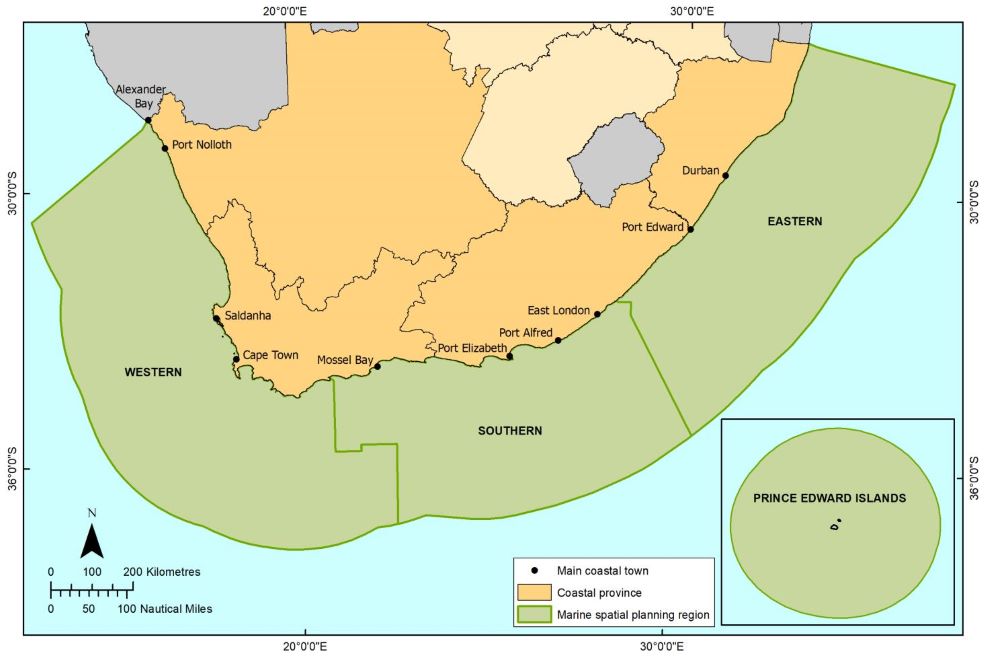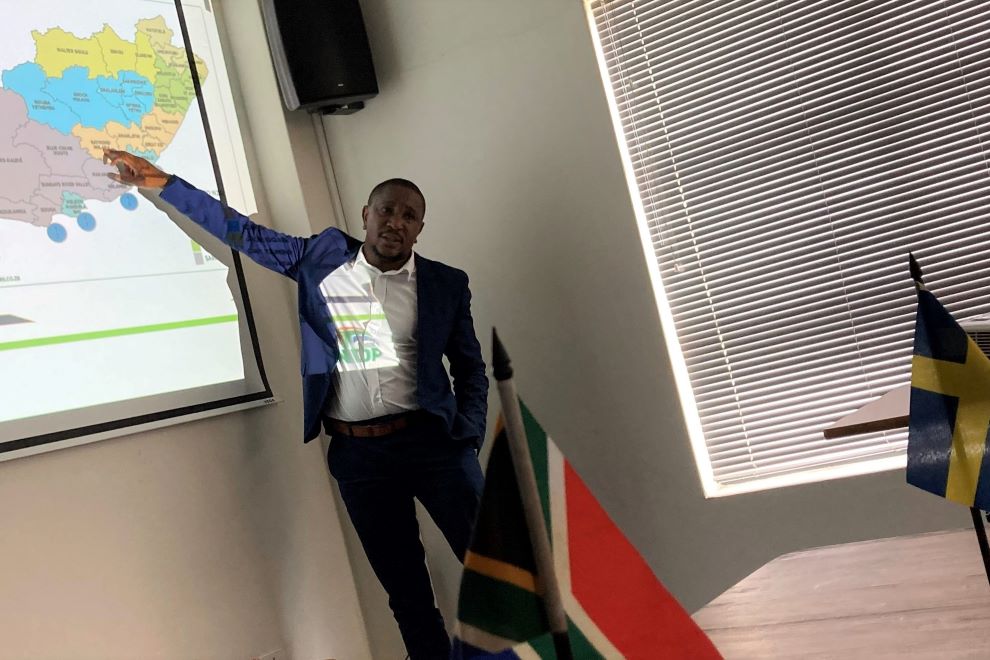News • 31 January 2023
Hello Moses Ramakulukusha
You are responsible for the daily activities of marine spatial planning at a technical level, and the focal person for marine spatial planning in the collaboration that the Department of Forestry, Fisheries and the Environment and SwAM are currently implementing.

Tell us briefly about yourself
My name is Moses Ramakulukusha and I am from the National Department of Forestry, Fisheries and the Environment (DFFE) which is the lead Authority for Marine Spatial Planning in South Africa. South Africa plans to develop Marine Area Plans in its waters, and the DFFE is working together with all parties in the development of these Marine Area Plans.
Describe the collaboration between SwAM and your organization
In their five-year working agreement, the DFFE and SwAM have more than three focus areas of collaboration and one of them is Marine Spatial planning.
South Africa and Sweden are currently working on their Marine Spatial Plans, and one of the areas of collaboration is on the sharing of technical knowledge between the two countries to ensure that they share lessons learnt from their Marine Spatial Planning processes.
To simply have someone on the other side of the hemisphere who can pick a phone and have a technical discussion with you
Another area of collaboration is on the application of the Swedish Symphony tool which can potentially be used to support the South African Marine Spatial planning process when it comes to assessment of cumulative environmental impacts in the marine environment.

Four marine area plans to be. – We have a good opportunity to learn from each other since South Africa is about to start the development of the first plan in 2023 and Sweden is revising its first plans now.
Has the bilateral collaboration with SwAM been of use to you and to your office?
Yes, the collaboration has been excellent.
The recently completed Western Indian Ocean Symphony tool – of which South Africa was one of the key contributors in term of data – will be of use in the South African MSP process, and it will be complemented with existing tools such as the Marine Spatial Planning Decision Support Tool that DFFE has developed.

The collaboration has been excellent. There are a lot of benefits that comes with collaboration, and just to simply have someone on the other side of the hemisphere who can pick a phone and have a technical discussion with you about marine spatial planning is sufficient.
What has SwAM learnt from the collaboration, do you think?
I think the approach of integrating social, economic and ecologically aspects in our MSP process have made SwAM to think about how it can expand the functionalities of the Swedish Symphony tool to accommodate not only ecological aspects, but socio-economic, when undertaking cumulative impact assessments.
How do you find working with the colleagues from SwAM?
Colleagues from SwAM are very professional and easy to engage with. The South African MSP delegation visited SwAM in July 2019 and the reception from the team was very good and memorable.
What benefits do you see in continuing collaboration between SwAM and your organization?
There are a lot of benefits that comes with collaboration and just to simply have someone on the other side of the hemisphere who can pick a phone and have a technical discussion with you about Marine Spatial planning is sufficient.
South Africa is just about to start with the development of the first of its four Marine Area Plans in 2023 and Sweden has just recently completed three Marine Spatial plans which will be re-submitted to the government after renewable energy considerations. We therefore have a good opportunity to learn from each other in the development of all these plans because we are in the same developmental stage which allows us to incorporate lessons learnt.
What would you like to collaborate on in the future?
Marine Spatial Planning is still a new field globally and nationally, so there is still an opportunity for the two countries to raise awareness and build capacity through training courses that are targeting students and communities living in the proximity of the marine environment.
We look forward to working with the SwAM family in 2023 and beyond! Thank you.
Learn more about our cooperation with South Africa and other countries.



